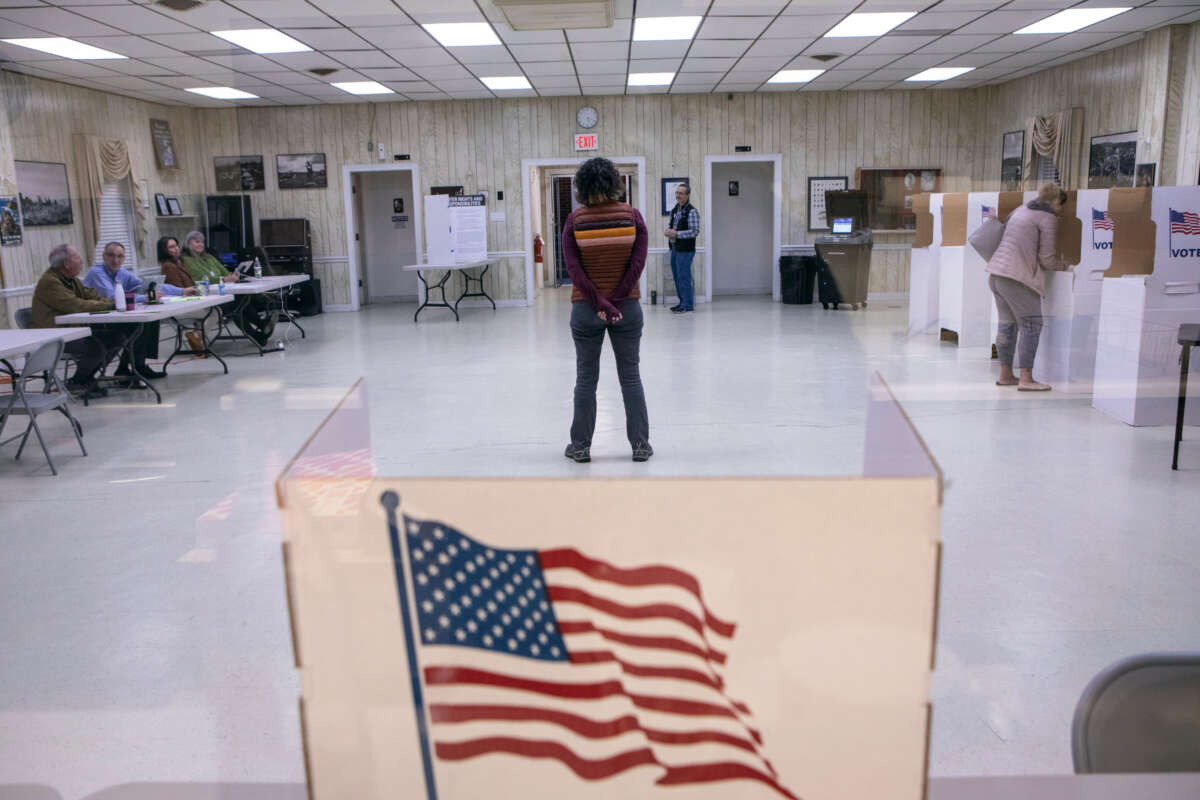Support justice-driven, accurate and transparent news — make a quick donation to Truthout today!
A federal judge in Virginia is allowing a lawsuit to move forward that could restore voting rights for hundreds of thousands of individuals convicted of felony crimes.
U.S. District Court Judge John A. Gibney Jr. issued his findings on Monday, stating that plaintiffs’ legal arguments against an 1870 law had enough merit to survive challenges from state officials who are seeking to have the lawsuit tossed out.
Last summer, residents of Virginia who are currently disallowed from voting based on their past felony convictions filed the lawsuit with the help of the American Civil Liberties Union (ACLU), Protect Democracy and other voting rights organizations. They allege that a federal law passed to allow Virginia to have representation in Congress after the Civil War forbids the state constitution and other laws passed by the state legislature from enacting stricter standards for voting than had previously existed.
The Virginia Readmission Act stated that no person in the state could be denied by Virginia law from being able to vote “except as a punishment for such crimes that are now felonies at common law.” Those laws, at the time, included convictions for murder, manslaughter, arson, burglary, robbery, rape, sodomy, mayhem and larceny. However, following readmission to the Union, Virginia lawmakers changed the constitution to provide for voter disenfranchisement for additional felonies beyond those “common law” ones, including drug offenses and other lesser crimes.
As noted by litigants in the lawsuit, the expansion of felony crimes in the state had “the specific intent to strip Black people of their voting rights.”
Individuals who have been convicted of these types of crimes can have their voting rights returned to them only if the governor of the state approves of it. In the previous three gubernatorial administrations, thousands of voters had their rights individually restored. However, Republican Gov. Glenn Youngkin has discontinued that practice.
According to the lawsuit, around 300,000 Virginians who have served out a sentence for a felony crime are still unable to vote at this time.
The litigants claim that Virginia has operated outside of the 1870 federal law that allowed the state to fully return to the U.S., and thus, for thousands of persons formerly convicted of a felony, their voting rights must be returned to them. Gibney didn’t state whether he agreed with their notions, but in his judgment on Monday, said the lawsuit had provided sufficient legal argument to proceed to trial.
Gibney made additional rulings regarding the lawsuit, including removing one nonprofit group, Bridging the Gap, from being part of it. The organization, which helps formerly convicted individuals restore their voting rights, claimed it had legal standing in the case to join with other plaintiffs based on its mission, but Gibney rejected their claim.
Gibney also removed some legal arguments from being allowed in the case, including the idea that Virginia’s disenfranchisement law is an excessive punishment disallowed under the terms of the Eighth Amendment to the U.S. Constitution.
Despite those setbacks, the ACLU and other groups still involved in the suit celebrated the advancement of the lawsuit.
“Virginia may no longer be a Confederate state, but the provision of our constitution that was specifically put in place to suppress the voting rights of newly enfranchised Black citizens after the Civil War is still oppressing Virginians today,” said Vishal Agraharkar, Supervising Attorney at the ACLU of Virginia.
“For more than a century, Virginia has been openly defying federal law by illegally depriving its citizens of the fundamental right to vote,” noted Jared Davidson, counsel at Protect Democracy. “As a direct and intentional result, generations of Virginians, especially Black Virginians, have been denied the equal opportunity to cast their ballots. [Monday’s] decision represents a significant step towards ensuring that every Virginian has an equal voice in our democracy.”
Media that fights fascism
Truthout is funded almost entirely by readers — that’s why we can speak truth to power and cut against the mainstream narrative. But independent journalists at Truthout face mounting political repression under Trump.
We rely on your support to survive McCarthyist censorship. Please make a tax-deductible one-time or monthly donation.
